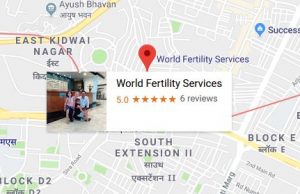
What is Surrogacy in India?
Surrogacy is the most intense process performed between a couple and another woman. It is the last resort after all other infertility treatments have failed. It recommends to the couple with no chance of conceiving and giving birth to the child. In 2002, India was a large surrogacy hub with various processes and advancements. Many people from all over the world chose India for surrogacy and to have a healthy child. After some years, it was banned and legalized to stop surrogate mother exploitation and limit the racket of illegal work. Only Indian citizens can select surrogacy in severe infertility conditions. It is the best step by the Indian Government for a better process and saves Indian surrogate mothers. The Surrogacy bill was passed by the Rajya sabha with the latest guidelines and restrictions on the process.
The gestational process is legal and allowed in India for the intended parents to select and become parents successfully. After several screenings and tests (medical and psychological), you will choose a healthy surrogate mother. It works with the eggs and sperm of the partner that fertilizes by the fertility expert in the lab. It fertilizes with the IVF (In-Vitro Fertilization) process to collect the embryo. The female ovaries will prepare by the expert to increase the eggs’ production and retrieve them from the uterus. The male semen sample prepares and mixes with the mature eggs on a Petri plate. It is expertly monitored and selects healthy fertilized eggs. The embryo implants into the surrogate mother’s uterus for pregnancy results. You will provide the care and routine checkups of the surrogate mother for the nine months of pregnancy. After the pregnancy, they will hand over the child to the intended parents’ arms.
What is the Indian surrogacy bill (regulation) 2019?
The Lok Sabha enacted the surrogacy bill (Regulation) 2019 bill on Friday, December 17th, 2021. After passing the bill, the parliament adjourned.
Dr Harsh Vardhan, India’s health and family welfare minister, introduced the bill on 15th July 2019 and passed it in Lok Sabha on 5th August 2019. It was reported to the Select Committee and transmitted to the Rajya Sabha for agreement and proposal. It passed by the Rajya Sabha on 9th December 2021 and transferred to the Lok Sabha. On 17th December 2021, the Lok Sabha passed the bill.
- The bill establishes some forms and building authorities to oversee the processes and practices.
- It restrains commercial surrogacy advertising and allows altruistic surrogacy in India. In an altruistic surrogacy, the intending parents do not compensate the surrogate mother but rather provide her with postpartum birth insurance.
- The National Surrogacy Board (NSB) and the State Surrogacy Board (SSB) will form to regulate those involved in the surrogacy process.
- According to the bill, the couple should have a valid certificate for surrogacy eligibility.
- Only Indian heterosexual couples can select surrogacy for their successful child.
- They should be legally married to each other for at least five years and have an age between 23 and 50 years (females) and 26 to 55 years (males).
- Many strict regulations and penalties are decided for people who overrule the laws by the Indian Government.
What are the laws and legality of surrogacy in India?
The surrogacy bill in India has new amendments after the bill was passed by the Lok Sabha. The following are the regulations and criteria for surrogacy in India:
- Regulation: Commercial surrogacy is prohibited in the bill by the Government. It involves monetary benefits given by the intended parents to the surrogate mother. Only altruistic surrogacy will perform as compensation or monetary benefit will provide to the surrogate mother. The intended parents can provide insurance coverage and medical charges until childbirth.
- Purpose: It is only available and legal in altruistic form. You cannot become a parent due to severe infertility and health conditions. Surrogacy is not allowed for the following purposes:
- overcome or eliminate pregnancy discomfort, uneasiness, or unethical condition
- The surrogate mother tries to earn some money or livelihood through commercial use.
- Not for the exploitation of surrogates, resulting children, or human gametes.
- You require the process for the second child in India.
- Eligibility: Various conditions and rules have been mentioned for the intended parents to select the process. Only Indian citizens with five years of marriage can opt for surrogacy in India.
- You have a severe and proven infertility condition certificate from the District Medical Board.
- The age of the partners is between 23 and 50 (wife) and 26 to 55 (husband) years old.
- You do not have any children through surrogacy or adoption, but any fatal disease can select.
- The traditional form is not available as the IUI process will not work. Only gestational surrogacy performed with IVF is available.
- Penalties: The Indian Government has included many offences and prohibitions under the bill. A person following do so has to face imprisonment of more than ten years and a fine of more than INR 10,00,000. such as
- Advertising for commercial surrogacy or any monetary benefit is illegal.
- The surrogate child is not a matter of exploitation, abandonment, and
- The exploitation of surrogate mothers and children for unlawful purposes or human trafficking
- The criminal trafficking of any gamete or embryo through the surrogacy process.
How much does surrogacy cost in India?
The surrogacy cost in India is much more affordable than in developed countries. It depends on various factors that affect the entire expense. If you have healthy gametes, it will increase your conception chances at a lower price. You need donor eggs or, sperm for a successful surrogate conception will increase the charges.
The IVF surrogacy cost in India ranges from INR 10,00,000 to INR 12,00,000. It will include various expenses for your surrogacy, as every process with self gametes, techniques, and medical and insurance charges of the surrogate mother. The following are the factors affecting surrogacy prices in India:
- The surrogate mother conceives over several IVF treatment cycles, raising the overall cost.
- If you do not have healthy eggs or sperm, you will require donor assistance. The charges for donor eggs or sperm increase the total cost.
- The medical and insurance expenses needed for the surrogate mother will affect the price.
- The centres you select for your process in India have affordable or expensive charges.
Where can you have the best surrogacy in India?
The WORLD FERTILITY SERVICES surrogacy centre in India follows all the regulations of the Indian Government in performing ART treatments. We never perform any process without following or considering the government rules. Our highly experienced fertility doctors and experts are well-known in India and never support any discrimination or treatment against the law. We have many services for patients with high comfort levels during the surrogacy method. We have various financial assistance and instalment facilities for affordable and pocket-friendly costs.
We have wholeheartedly adopted the surrogacy bill passed by Rajya sabha at the centre to provide processes accordingly. We have VVIP services and care for every person in India that helps in high comfort and satisfaction during your emotional rollercoaster journey of becoming parents successfully.
NOTE: Currently, The amendments regarding the surrogacy bill (regulation) in India are on hold. We perform any process according to the laws and regulations published by the Indian Government.
Read More:- Surrogacy Regulation Bill



 WhatsApp us
WhatsApp us